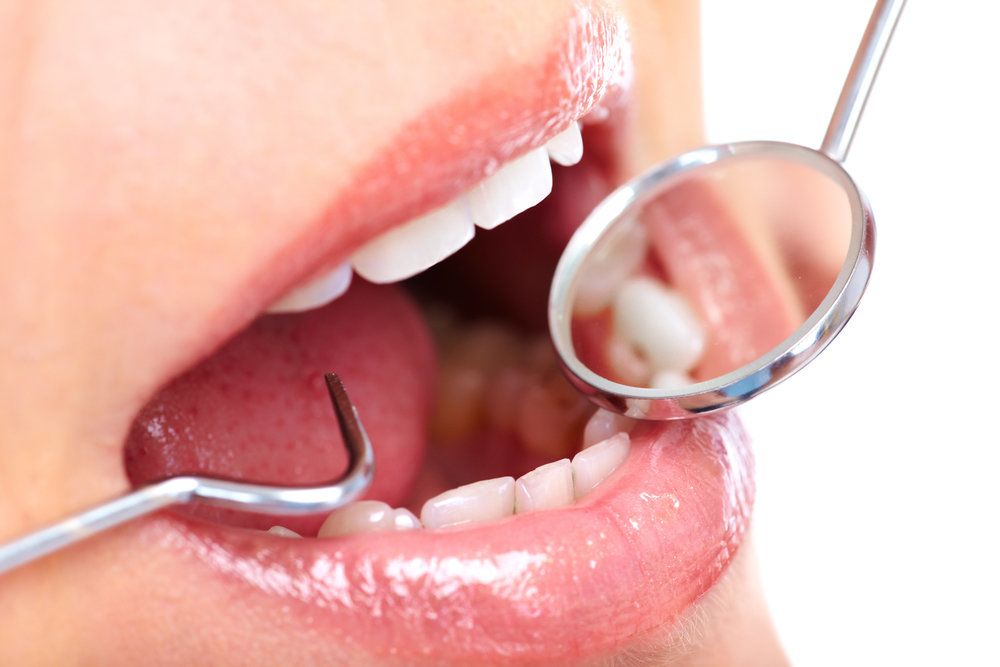Deep Cleaning Candidates
 If you have avoided going to the dentist for several years or have developed gum disease, you may be a good candidate for a deep cleaning, which is also known as root planing and scaling. During a deep cleaning, dentists can clean the visible surfaces of the teeth, along with the tooth roots, which are located beneath the gum tissue. This general dentistry treatment offers a number of benefits to patients. At the Cosmetic Dentistry Institute, Drs. Craig and Marcy Goldin will examine your teeth and gums during your dental exam, and determine if you have built-up excess plaque and bacteria below the gum line. We often find that deep cleaning candidates at our Troy practice have avoided visiting the dentist for professional cleanings or fail to exercise proper oral hygiene at home.
If you have avoided going to the dentist for several years or have developed gum disease, you may be a good candidate for a deep cleaning, which is also known as root planing and scaling. During a deep cleaning, dentists can clean the visible surfaces of the teeth, along with the tooth roots, which are located beneath the gum tissue. This general dentistry treatment offers a number of benefits to patients. At the Cosmetic Dentistry Institute, Drs. Craig and Marcy Goldin will examine your teeth and gums during your dental exam, and determine if you have built-up excess plaque and bacteria below the gum line. We often find that deep cleaning candidates at our Troy practice have avoided visiting the dentist for professional cleanings or fail to exercise proper oral hygiene at home.
Poor Oral Hygiene
If you fail to brush your teeth twice and day and floss daily, plaque and bacteria will build up along your gum line and between your teeth. If this plaque is left on the teeth for more than 24 hours, it will harden into a substance called tartar or calculus. This hardened form of plaque is difficult to remove with a toothbrush and floss. In most cases, it must be removed with a dental pick during a professional cleaning. If plaque and bacteria continue to accumulate, it can work its way beneath the gum line. The only way this plaque can be removed is with special dental tools during the deep cleaning procedure.
Missed Dental Appointments
If you miss your scheduled dental exams and cleanings, which are supposed to take place every six months, plaque, bacteria, and tartar will continue to damage the teeth and soft tissues of the mouth. The patient is at a higher risk of developing tooth decay and gum disease if they miss routine dental appointments. The longer the patient goes without professional dental care, the more likely he or she will develop dental problems and require a deep cleaning.
Gum Disease
As plaque, bacteria, and tartar accumulate under the gum line, the gums begin to pull away from the teeth, forming pockets. As the condition worsens, the teeth may become loose and eventually require extraction. To remove the debris and encourage the gums to re-attach to the teeth, we often recommend a deep cleaning. During this procedure, we will numb the gums with local anesthesia, and clean the roots of the teeth using special scaling instruments. Then, we will smooth the surfaces of the roots with the planing process to make it more difficult for plaque and bacteria to adhere to their surfaces. Once this procedure is complete, gum tissue will regenerate and re-attach to the teeth.
If gum disease is advanced, we may complete the deep cleaning in several appointments. Patients may also require gum surgery, such as flap surgery or a gum graft.
To maintain the results of the deep cleaning procedure, patients must adhere to proper at-home oral practices. This includes thoroughly brushing the teeth twice a day and flossing daily. Patients should also attend dental exams and cleanings every six months.
To schedule your dental appointment with us, contact the Cosmetic Dentistry Institute today.


